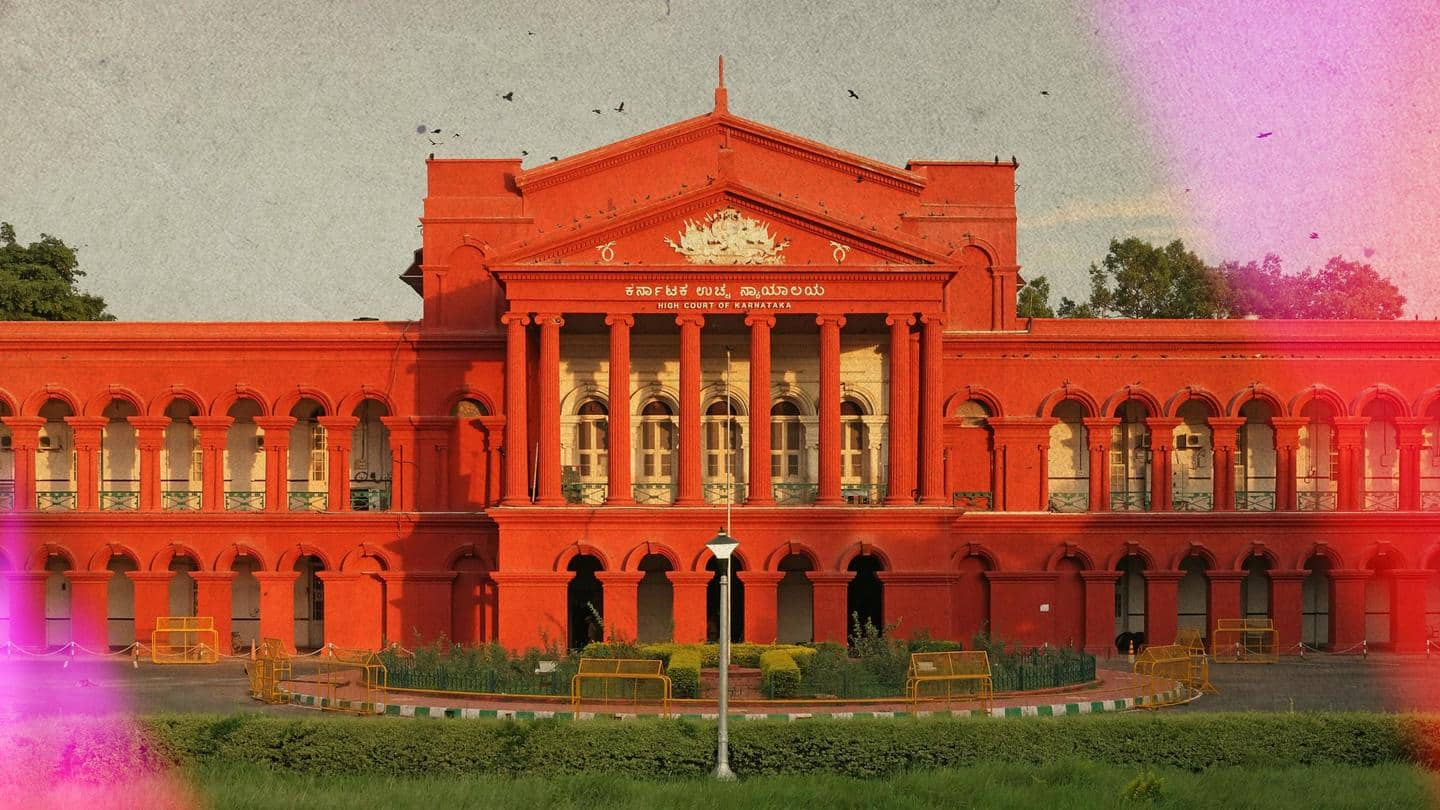
Karnataka: HC allows Ganesh Chaturthi celebration at Hubballi's Eidgah ground
What's the story
The Karnataka High Court on Tuesday upheld the Dharwad municipal commissioner's ruling permitting the Ganesh Chaturthi celebration to be organized at the Hubballi Eidgah Maidan.
In midnight hearing, Justice Ashok S Kinagi issued an interim order rejecting Anjuman-e-Islam Hubballi's petition to prevent the Hubballi-Dharwad Municipal Corporation (HDMC) from the installation of the Ganesha idol at the ground.
Context
Why does this story matter?
On Tuesday, Supreme Court issued an order in a similar issue ruling that no Ganesh Chaturthi festivities can be held at the Eidgah Maidan in Bengaluru's Chamarajpet.
The top court has asked both parties to maintain the status quo.
Earlier, the Karnataka government, based on several requests reportedly granted permission for Ganesh Chaturthi festivities at the disputed ground amid increased communal tensions.
Ruling
What did the HC say?
"This (the Hubballi grounds) is corporation property and the corporation can do whatever it considers appropriate... They have two days to pray, Ramzan and Bakra Eid, that, of course, cannot be interfered with," said the judge.
Notably, the Hubballi civic body decided earlier on Tuesday to perform Ganesh Chaturthi celebrations on the Eidgah grounds after several requests.
Details
How is Hubbali Eidgah issue different?
According to The Hindu, the High Court remarked that the Hubballi Eidgah Maidan problem was distinct from the Chamarajpet Eidgah Maidan situation in Bengaluru.
While the latter lawsuit was connected to a title dispute, the HDMC was the absolute owner of the Hubbali Eidgah since the title was affirmed by the High and confirmed by the SC in 2010, it was noted.
Hearing
Urgent hearing after SC decision on Bengaluru Eidgah
The decision to allow the Ganesha festival for three days starting on August 31 was questioned by the petitioner in the case, the Anjuman-e-Islam, according to News18.
On Monday, it submitted a new motion to the HC asking for an expedited hearing of its appeal challenging the validity of the choice made by a House panel of the HDMC.
Plea
What did the petitioner argue?
According to the Muslim body, the disputed property was protected under the Places of Worship Act, 1991, which forbids the conversion of any site of religious worship for another purpose.
However, according to the court, the disputed property was not a house of worship and was only permitted to be used for prayers during Bakra Eid and Ramzan.